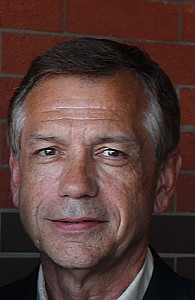Audiobook
Vocal Characteristics
Language
EnglishVoice Age
Middle Aged (35-54)Accents
North American (General)Transcript
Note: Transcripts are generated using speech recognition software and may contain errors.
60 years after the events in Western Europe, the stars of many American commanders have faded. Patton's flag, bright and colorful as ever, still snap smartly in the breeze. Patton, the caricature of a rough talking, hard charging general, captures the imagination of a legion of admirers. His strident war face attracts many who seek the quintessential warrior. Others put off by his bellicose, profane and crude histrionics, said he bordered on madness. No other commander in World War Two more deeply impressed his personality on his command than George Patton. Some say patent transformed Third Army into his own image. Many believe Third Army began to exhibit the mannerisms and idiosyncrasies of its colorful commander. Another American general summed up the consensus opinion of the third Army's commanders. Point of view. He gave one. The impression that he considered World War two so far to be patent versus the very mocked and colorful he WAAS patent had the kind of personality that humans warm to and admire and large organizations of war. Only through the intervention of Marshall and Eisenhower was patent say from repeated efforts, it self immolation. The slapping incidents insistently or patent struck, hospitalized Gi's the general thought were malingering. That process costs Patton his close friendship with like, despite his brusque demeanor, patent care deeply for his own troops, like the better advertised actions of Eisenhower, Bradley and Hodges Patton Salt of the welfare of his men. Remembering his own World War One experience, he saw to it that drying rooms were established for front line troops caught in the incessant Lorraine reign of Fall 1944. He personally wrote and distributed detailed instructions on the prevention of Trench Foot to his subordinates. He stressed the individual officers responsibility for the health and well being of their troops at all times. Behind the tough image stood a towering intellect, self taught in the operational art while he struck an anti intellectual tone popular with the culture that produced him. Here was an officer who had spent a lifetime thinking deeply about his profession. The source of his genius was in his library and on the job learning rather than in the Army schooling system. Patton read extensively on strategy and the operational art. Glossing many of the works is he read British General the same who wrote a book analyzing patent as a military commander stated in the hours of peace, time, reading and reflection which he had spent in his study lice. Part of the explanation of his speed of decision when these very problems arise again in a new form. Patton was the master of mechanized warfare and exploitation. Once on the move, he made decisions quickly. I maneuvered his units with speed and confidence. Von Rundstedt considered him a far more dangerous opponent than Montgomery. Patent simply move faster than the Germans could react as much as his tanks, patents, mental agility created the speed of his maneuvers.
